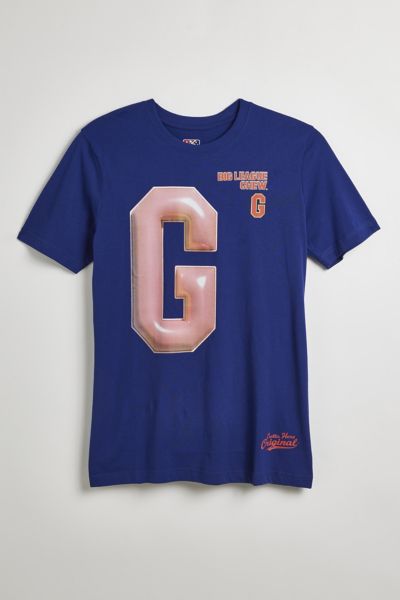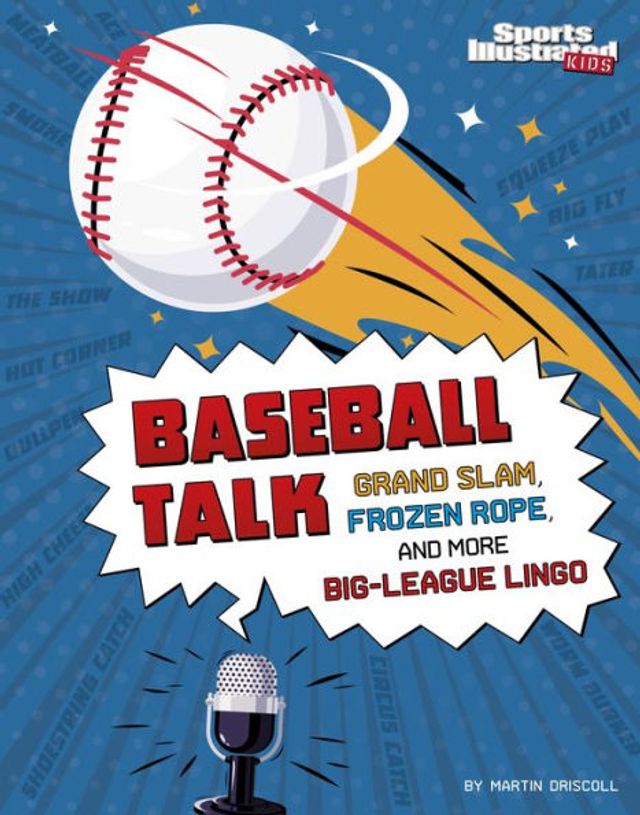Home
Big League Dreams
Barnes and Noble
Big League Dreams
Current price: $12.95


Barnes and Noble
Big League Dreams
Current price: $12.95
Size: Paperback
Loading Inventory...
*Product information may vary - to confirm product availability, pricing, shipping and return information please contact Barnes and Noble
Big League Dreams finds the Krimsk Rebbe and many of his flock in Saint Louis on a Saturday, the Sabbath, in the summer of 1920.
In Saint Louis, it is the summer of 1920 and the day is the Sabbath, but there is little rest for the Jews from Krimsk and less reverence for the wondrous Krimsker Rebbe, who led them to the New World seventeen years before. The rebbe's former hasidim have embraced America to discover that the vision of "gold in the streets" evokes larceny in the heart. Matti Sternweiss, the ungainly, studious child wonder in Krimsk, now the cerebral catcher for the St. Louis Browns, is scheming to fix Saturday's game against the pennant-contending Detroit Tigers.
It is an American Sabbath: Prohibition, bookies, the criminal syndicate, the Hiberian fellowship of the police brass, hometown blondes, a bootlegging rabbi, and big league baseball. It is also Krimsk in America: Boruch Levi, the successful junkman, confiscates his zany, crippled brother-in-law Barasch's sizable bets; Barasch's lusty wife, Malka, has her own connubial reasons for wanting to stop the gambling; the chief of police fatefully inspires his loyal disciple, Boruch Levi, to bring Matti before the Krimsker Rebbe on the Sabbath in order to preserve the purity of the national pastime.
Recluse and wonder-worker, messianist and pragmatist, the Krimsker Rebbe navigates the muddy Mississippi River, haunted by a recurring prophetic vision of Pharaoh's blood-red Nile. In the final, decisive innings, with Matti crouched behind home plate, it will come down to Ty Cobb versus the kabbalah.
Richly imagined, populated with robust, complex characters,
Big League Dreams
is a profoundly original, inspiring, and comic creation. It is the second volume in the series
Small Worlds,
which follows the people of Krimsk and their descendants in America, Russia, Poland, and Israel. In each volume Allen Hoffman draws on his deep knowledge of Jewish religion and history to evoke the finite yet infinite "small worlds" his characters inhabit.
In Saint Louis, it is the summer of 1920 and the day is the Sabbath, but there is little rest for the Jews from Krimsk and less reverence for the wondrous Krimsker Rebbe, who led them to the New World seventeen years before. The rebbe's former hasidim have embraced America to discover that the vision of "gold in the streets" evokes larceny in the heart. Matti Sternweiss, the ungainly, studious child wonder in Krimsk, now the cerebral catcher for the St. Louis Browns, is scheming to fix Saturday's game against the pennant-contending Detroit Tigers.
It is an American Sabbath: Prohibition, bookies, the criminal syndicate, the Hiberian fellowship of the police brass, hometown blondes, a bootlegging rabbi, and big league baseball. It is also Krimsk in America: Boruch Levi, the successful junkman, confiscates his zany, crippled brother-in-law Barasch's sizable bets; Barasch's lusty wife, Malka, has her own connubial reasons for wanting to stop the gambling; the chief of police fatefully inspires his loyal disciple, Boruch Levi, to bring Matti before the Krimsker Rebbe on the Sabbath in order to preserve the purity of the national pastime.
Recluse and wonder-worker, messianist and pragmatist, the Krimsker Rebbe navigates the muddy Mississippi River, haunted by a recurring prophetic vision of Pharaoh's blood-red Nile. In the final, decisive innings, with Matti crouched behind home plate, it will come down to Ty Cobb versus the kabbalah.
Richly imagined, populated with robust, complex characters,
Big League Dreams
is a profoundly original, inspiring, and comic creation. It is the second volume in the series
Small Worlds,
which follows the people of Krimsk and their descendants in America, Russia, Poland, and Israel. In each volume Allen Hoffman draws on his deep knowledge of Jewish religion and history to evoke the finite yet infinite "small worlds" his characters inhabit.


















